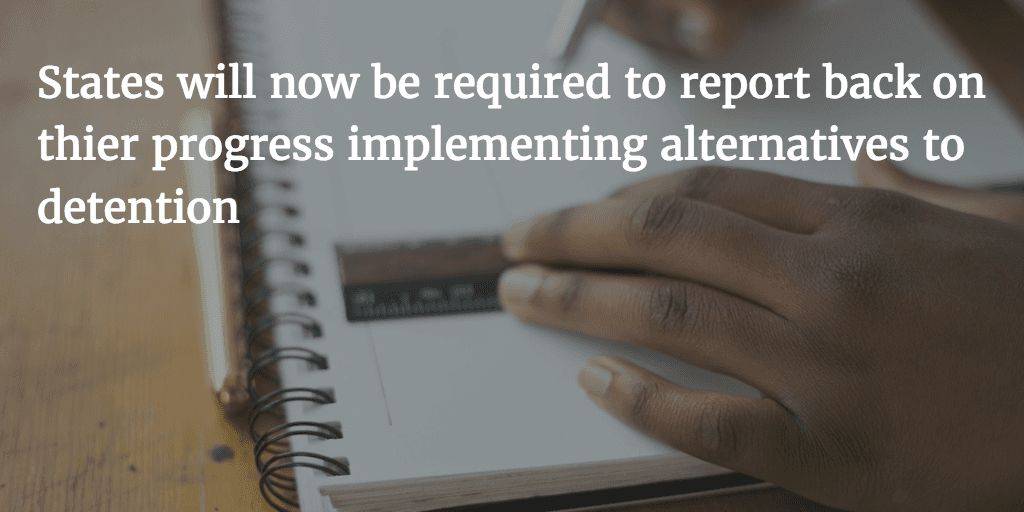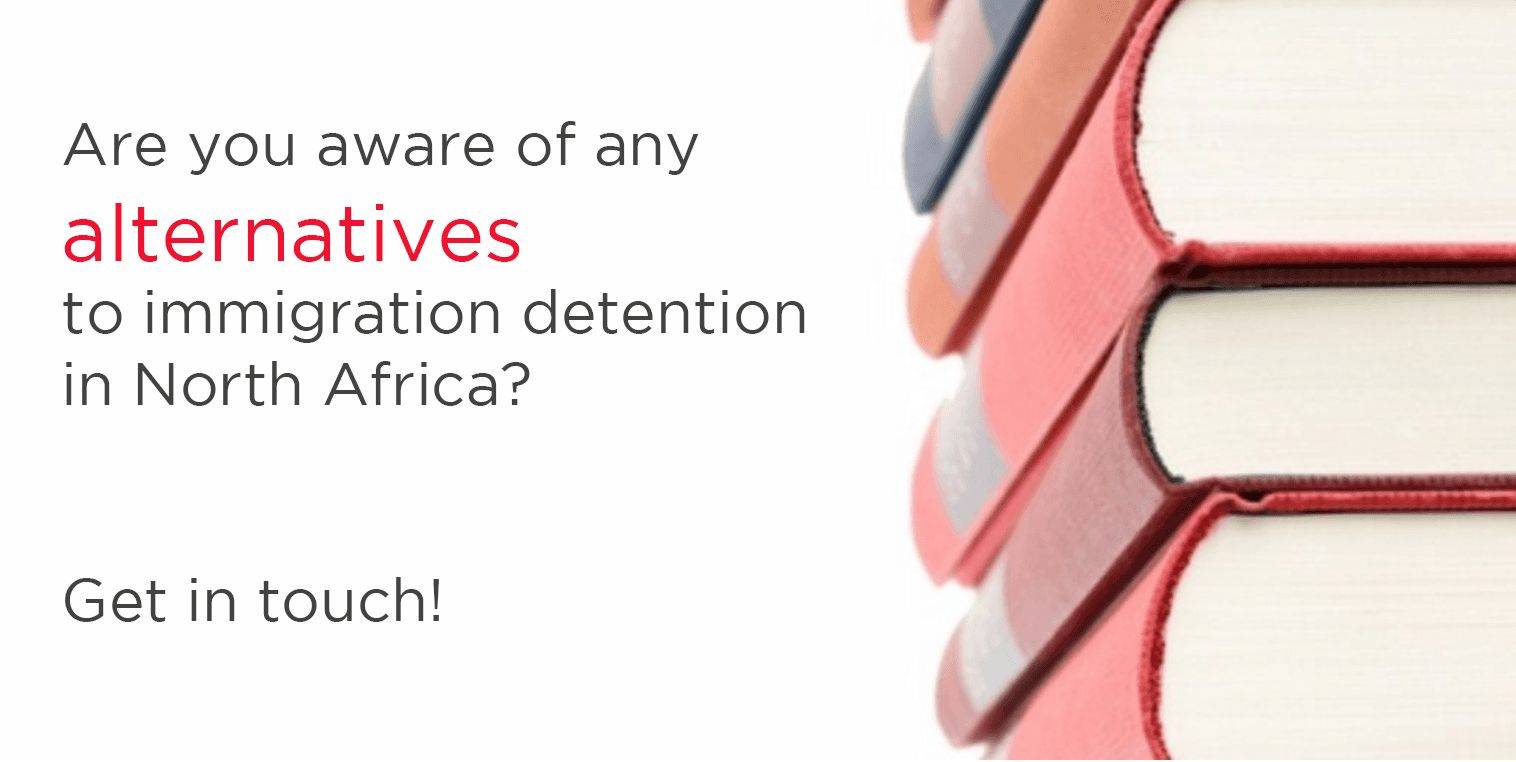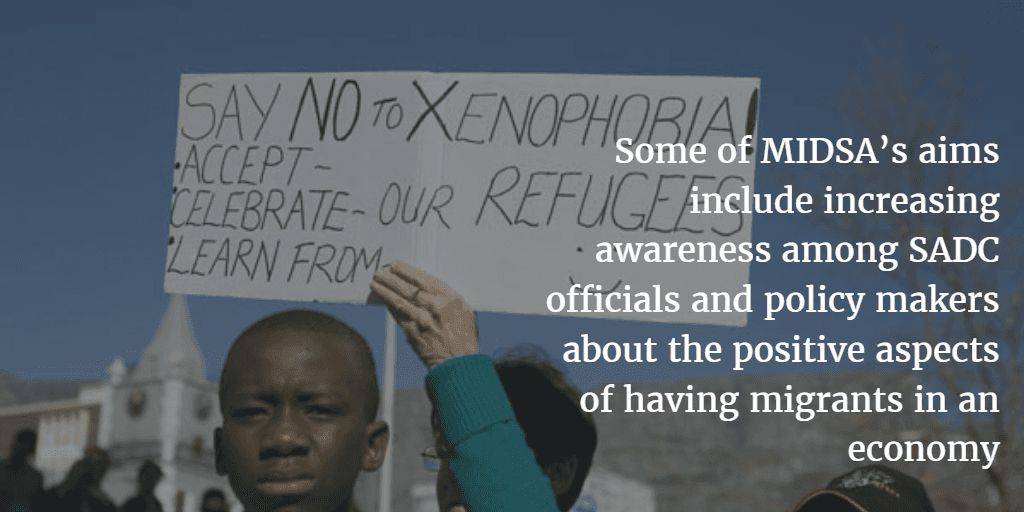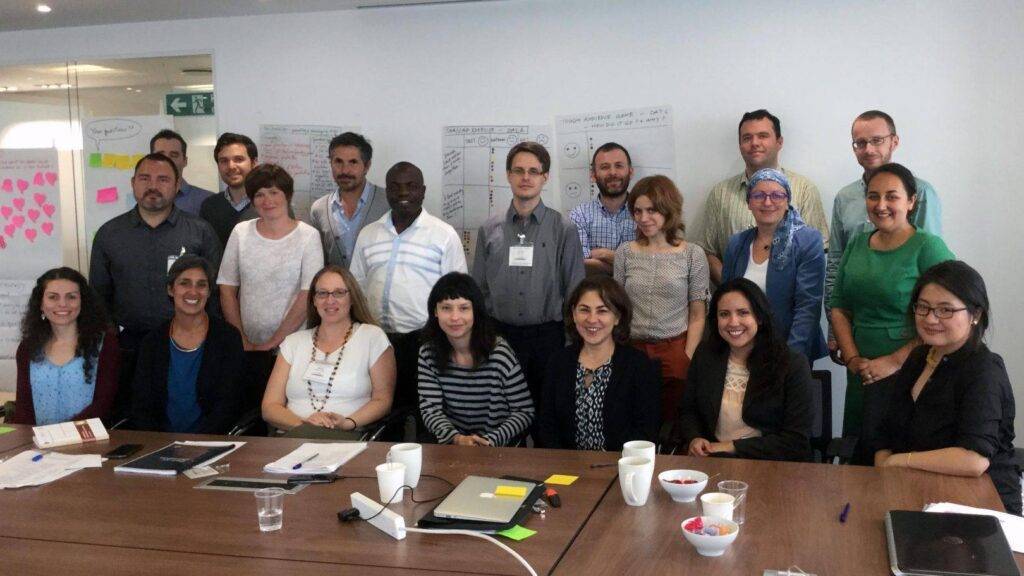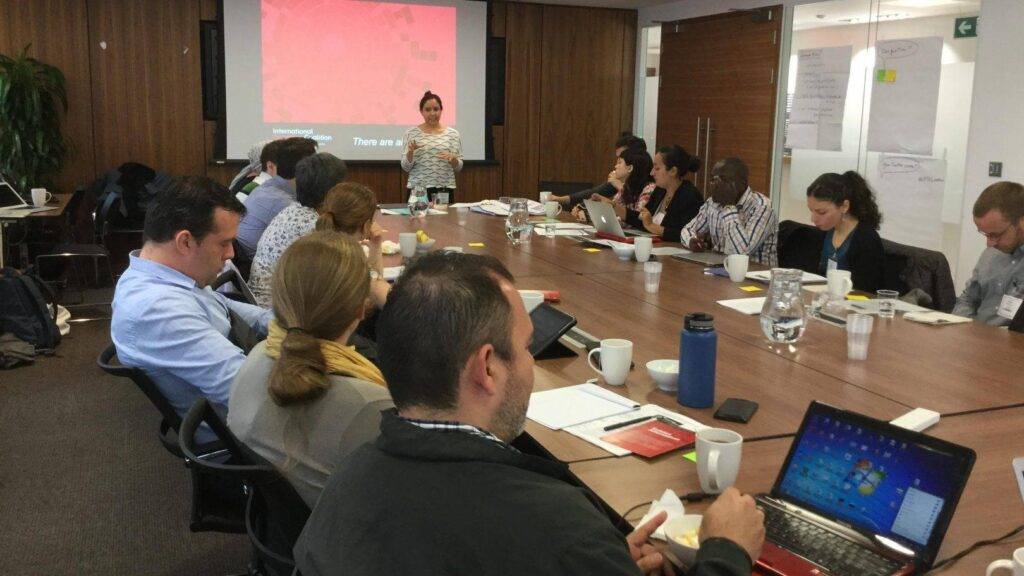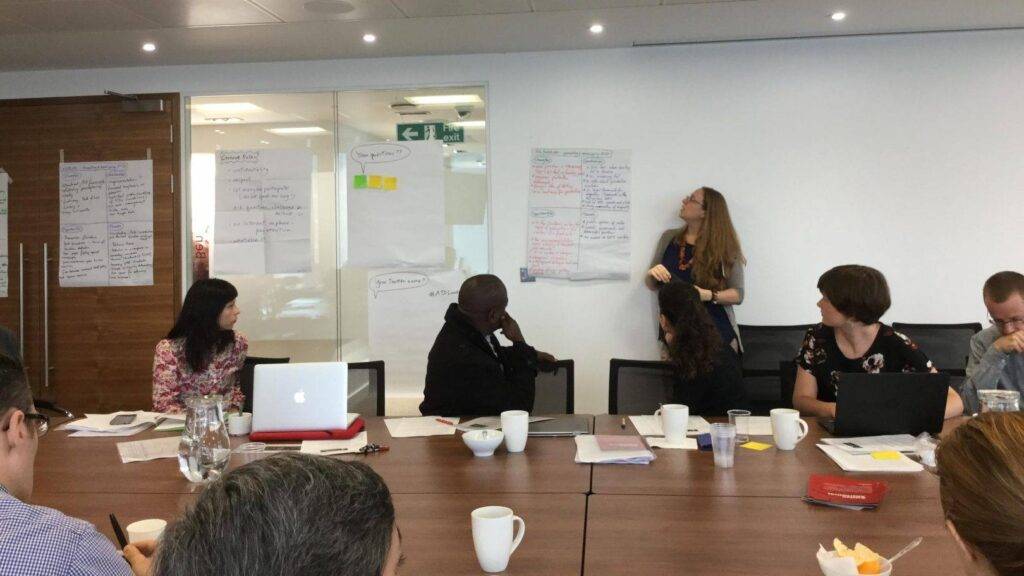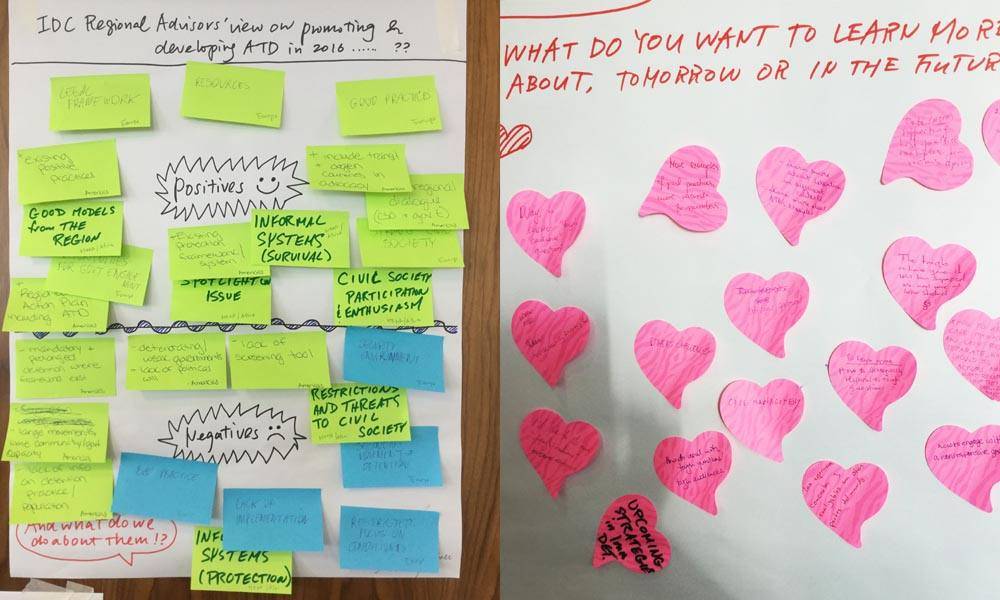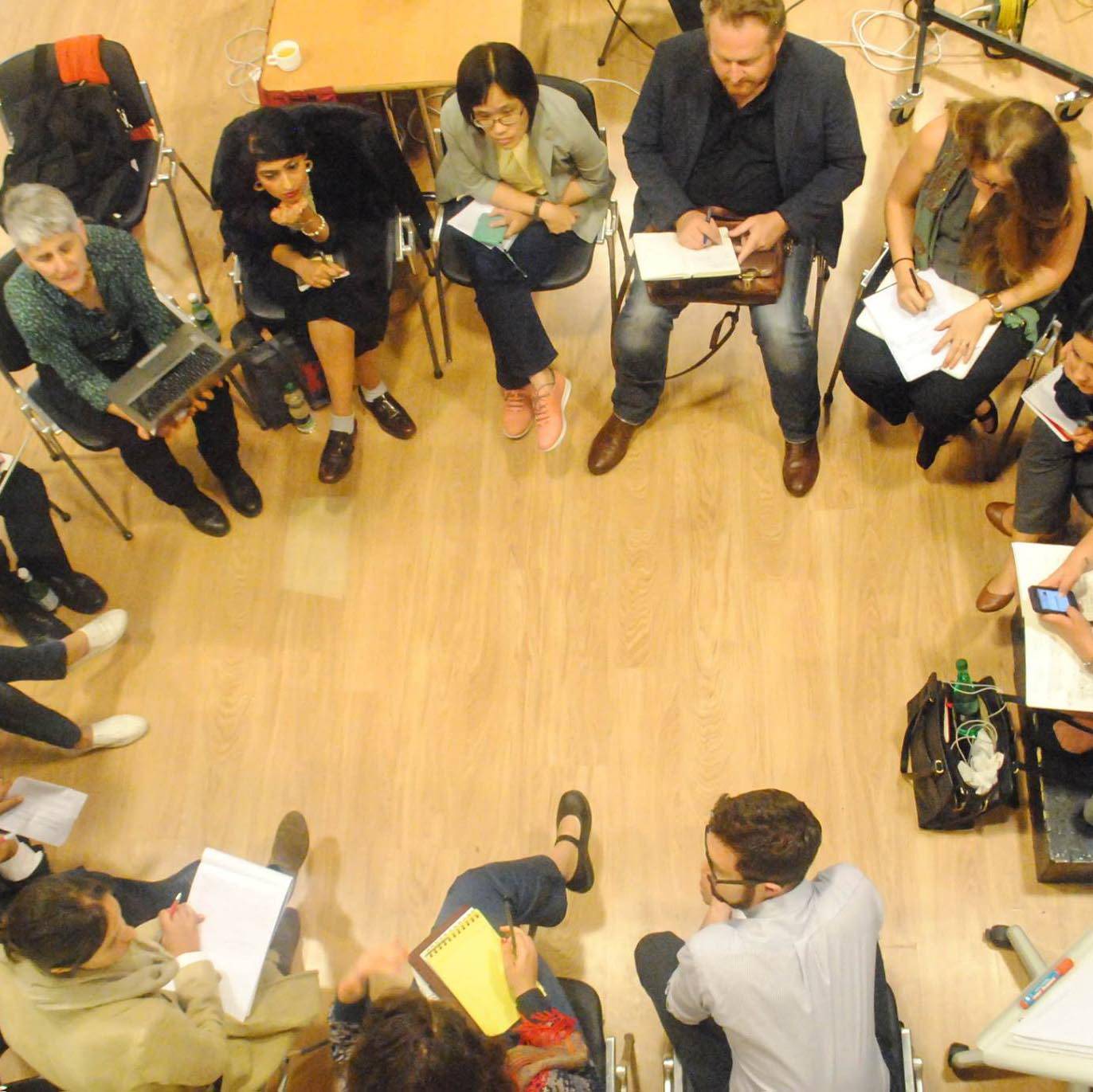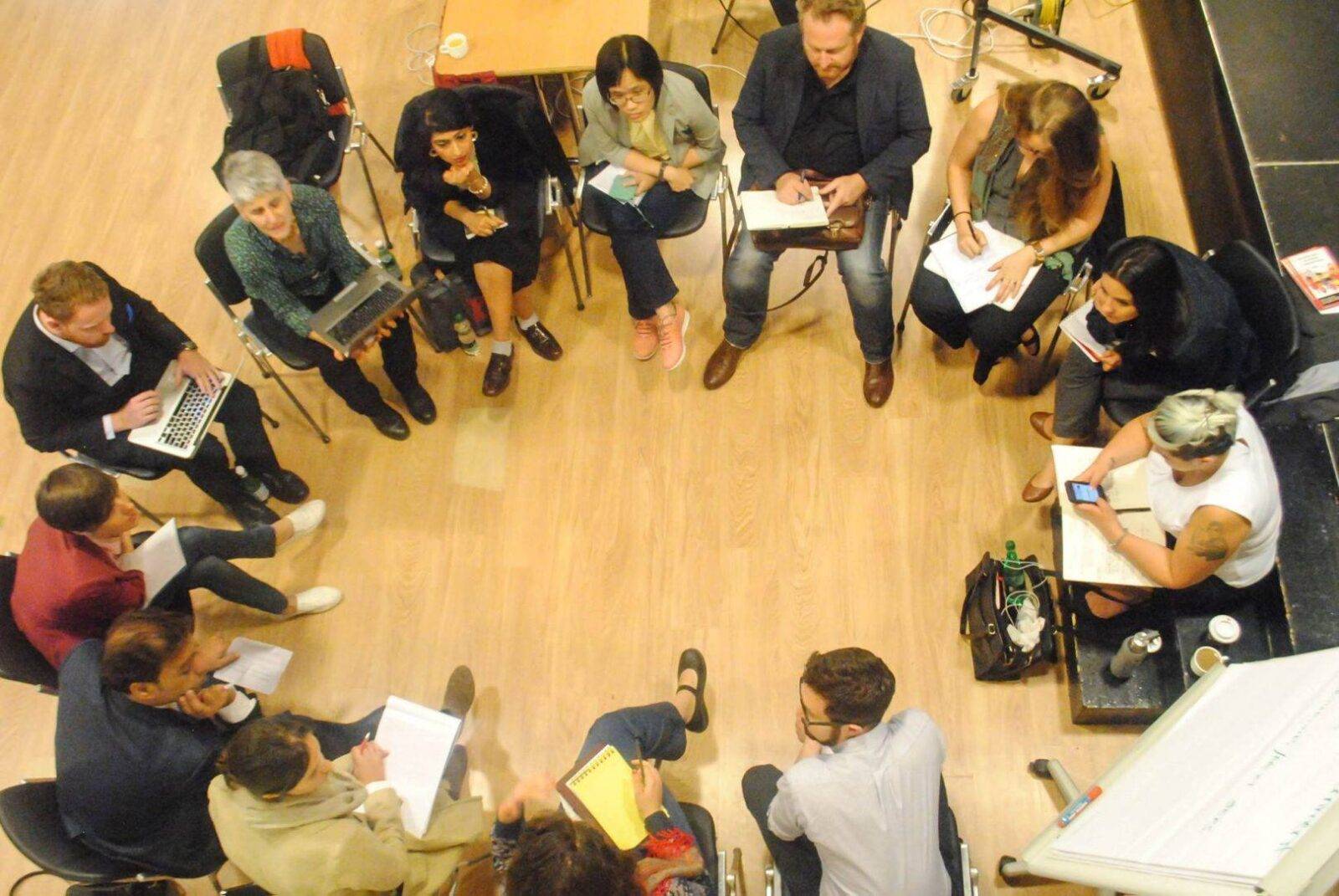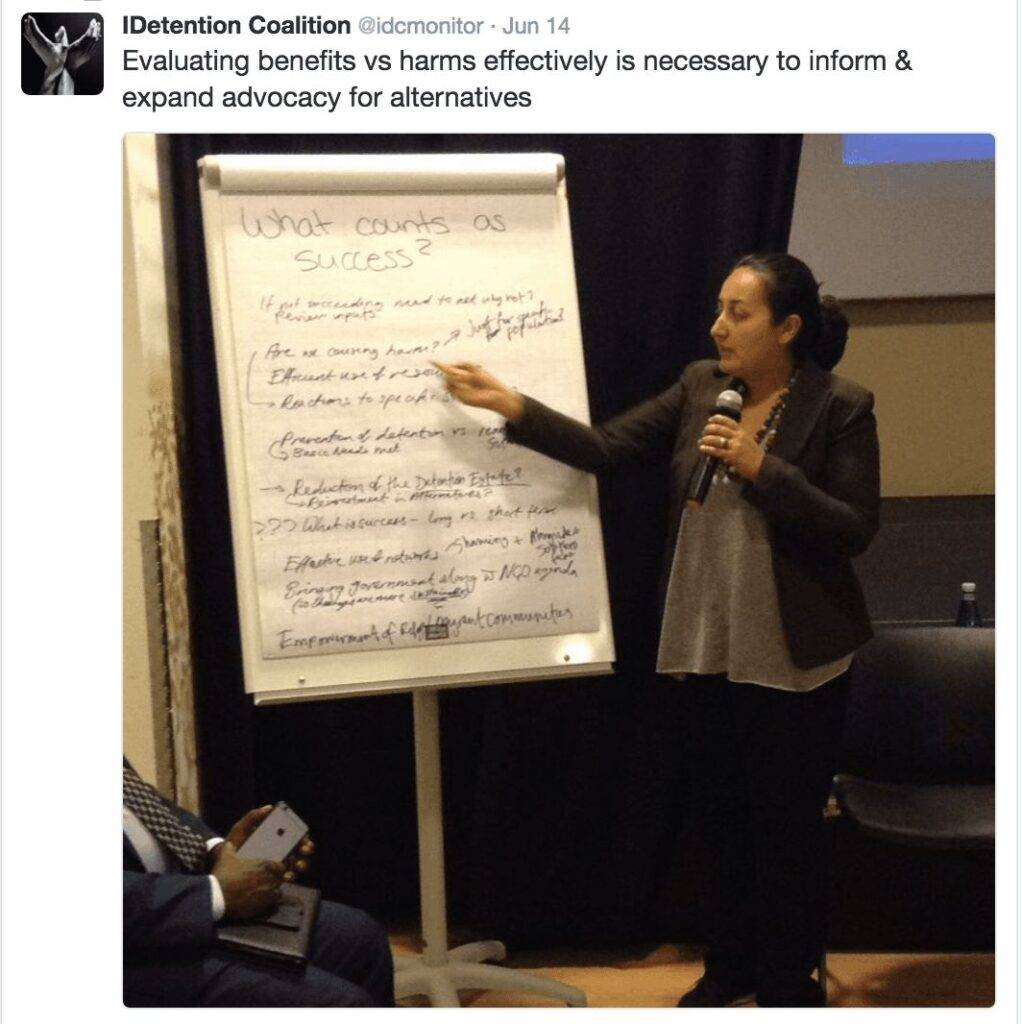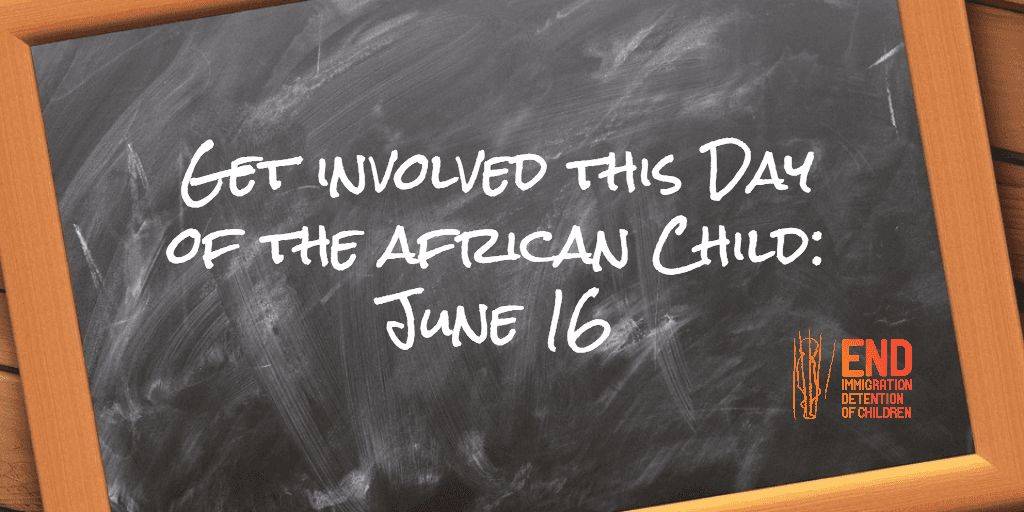Significant Regional Commitment to Implement Alternatives to Detention
Fifteen States across Africa committed to developing and implementing alternatives to detention for migrants, including children, at the 2016 Migration for Southern Africa Dialogue (MIDSA).
The commitment marks significant progress, upgrading from the previous commitment to exploring alternatives to detention (ATD) to manage migration of vulnerable people in Southern Africa.
The States are Members of the Southern African Development Community (SADC), becoming the first sub regional mechanism in Africa to join the growing movement promoting alternatives as a solution to end child detention.
Officials from the governments of Botswana, Angola, Malawi, Democratic Republic of Congo, Mozambique, Lesotho, Madagascar all revealed during MIDSA 2016 that the exploration phase of alternatives to detention has been successful, supporting the upgrade of language from 'explore' to the ‘implementation’ stage of their ATD commitments.
The IDC Africa and Middle East Regional Coordinator, Junita Calder, participated in the MIDSA discussions, sharing good practices and commending States for the progress made exploring alternatives to detention in the region.
Some of the alternatives identified include policies and pilot projects being developed by these States. Screening processes to identify unaccompanied children and other vulnerable migrants have been shown to be beneficial to States to prevent unnecessary detention or confinement with criminals.
This commitment by SADC officials means that, in a practical sense, States will be required to report back on progress of alternatives to detention in future MIDSA meetings, which take place annually to bring together senior government officials to discuss and agree upon migration-related issues of regional concern.
Forthcoming work by SADC governments include policies to strengthen child rights and labour laws to protect migrants, as well as training border control officials to conduct initial screenings and assessments.
Representatives from the International Organisation for Migration and UNHCR Africa pointed out that the success of any of the ATD pilot projects in the region often depends on effective regional cooperation among SADC governments, by sharing best practices. “We need to work together to develop specific responses to mixed migration which ensures protection for vulnerable people. Effective screening and assessment processes are necessary in migration management,” said Veronica Irima Modey-Ebi, UNHCR Deputy Regional Representative for Southern Africa.
“If we can acknowledge and manage migration in a coherent manner, we can reap the benefits,” said Peter Mudungwe, Migration Advisor, African Union Commission.
At the 2016 MIDSA, Ben Aliwa, representative of Save the Children East and Southern Africa Child Migration Program, pointed out that adopting a case management approach was an effective alternative to detention for migrant youth and children.
During discussions, Calder highlighted the importance of continuous monitoring and review processes in developing and implementing alternatives to detention. “Monitoring border posts and detention centres improves data collection and helps make effective referrals. This ensures protection for refugees and other migrants.”
Mabuse Pule, Botswana's Director of Immigration and Citizenship, pointed out that it was important to allow social workers to be actively involved in border management, so that they can educate law enforcement officials about rights of vulnerable migrants like children and avoid placing them in harmful detention.
The IDC commends this development and looks forward to the next stage of this significant commitment to alternatives.
See the outcomes document here: Final MIDSA 2016 Conclusions and Recommendations
Do you know about alternatives to detention in North Africa?
The IDC is proud to announce that our exciting new study on North Africa, in collaboration with MHub and the North Africa Mixed Migration Task Force (NAMMTF), has commenced.
This research study aims to identify, describe and assesses alternatives to immigration detention in North Africa, with a strong focus on children and youth. The research will focus on the countries of Algeria, Egypt, Libya, Morocco, Sudan, and Tunisia. IDC recently appointed Mr Abdelkader Abderrahmane as the lead research consultant to implement the program of research.
Since 2011, violent conflicts in places like Libya and Syria has displaced millions of individuals in the Middle East and North Africa region. In recent years, asylum seekers and other migrants have increasingly used the North African coastline as a route to Europe. Some of these migrants are vulnerable children and youth who embark on the perilous sea journey without their parents. Further, the EU is pressuring North African governments to curb migration flows from their countries with over 4,000 deaths in the Mediterranean in the first half of 2016 alone. In light of these developments, governments in North Africa are increasingly using immigration detention.
The IDC has published research on alternatives to detention after surveying over 50 countries around the world, identifying over 250 efficient, humane and viable options for migration governance. The approaches include community options to prevent detention of children. This new North Africa study will identify alternatives for policy makers, civil society and international agencies in the region.
MHub is an initiative developed by humanitarian agencies in North Africa including the Danish Refugee Council, Regional Mixed Migration Secretariat and the UNHCR. MHub produces research and analysis on mixed migration trends and developments, for NAMMTF members and relevant stakeholders in the region.
To aid us with this study, if you are aware of any alternatives to immigration detention in the North Africa region, please contact IDC Senior Advisor and Research Coordinator Dr. Robyn Sampson on [email protected] or IDC MENA Regional Coordinator Ms. Junita Calder on [email protected]
IDC participating in 2016 MIDSA
In addition to regional work in Africa, the IDC strongly supports the sub-regional initiative, the Migration Dialogue for Southern Africa (MIDSA), which will take place in Gaborone, hosted by the government of Botswana next week.
MIDSA aims to facilitate regional dialogue and cooperation on migration policy issues amongst the Southern African Development Community (SADC). IDC Africa and Middle East Regional Coordinator, Junita Calder will be attending the 2016 MIDSA meeting to follow up with SADC officials and related agencies on recent developments and actions taken on developing Alternatives to Detention and Detention Monitoring in their migration programs.
According to IOM statistics, the Southern African region has some of the highest numbers of people participating in mixed and irregular migration. This includes both economic migrants and individuals displaced by conflicts and natural disasters in other African states like Ethiopia and Somalia. Access to Southern African countries has been increasingly sought by these migrants due to increasing job opportunities in sectors like mining, manufacturing and agricultural industries.
Some of MIDSA’s aims include increasing awareness among SADC officials and policy makers about the positive aspects of having migrants in an economy, as they foster social and economic development. MIDSA also aims to strengthen institutional capacities to deal with challenges in migration management through enhanced cooperation. In this area, IDC has been engaging with agencies in Southern Africa to resource governments to maintain their MIDSA Alternatives to Detention and Detention Monitoring commitments as outlined in the Regional Action Plan. This year, IDC will look for key developments and new commitments from members in this area.
Don’t miss IDC’s live tweets on @IDCAfrica to learn about this meeting and other relevant migrant news on the continent.
Malawi Immigration Law Audit Calls for an End to Child Detention
The Malawi Immigration Law Audit highlights why children who have fled their home countries should not be in held in detention. As part of a comprehensive set of recommendations regarding the treatment of immigrants in Malawi, the Audit proposes alternatives to child detention.
The recommendations align with international law, which specifies that children should never be detained as a result of their migration status. Children in situations of conflict are often forced to leave their homes, sometimes without a family member or guardian. Evidence shows that detention is seriously damaging to the short and long-term mental health and development of children. Seeking alternatives to detention is vital for this vulnerable group.
The Audit recommends first and foremost that child migrants not be detained, and instead have access to safe accommodation, education and medical treatment. The report also recommends that child migrants and in particular, unaccompanied children, be provided with accommodation, outside of juvenile or adult detention facilities.
The impetus for the audit has been the increase in migrant detention in criminal prison facilities in Malawi. Many people have been detained while attempting to transit through Malawi, often on route to South Africa, and this has included migrant children. IDC Members, the Southern Africa Litigation Centre and the Centre for Human Rights Education Advice and Assistance (CHREAA) launched the report on 20 May 2016.
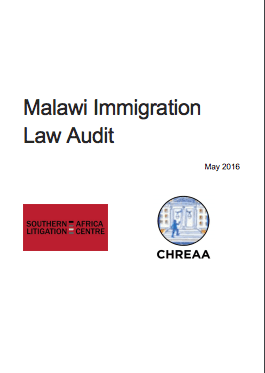
IDC ATD Workshop for Regional Advisors - June 2016 London, UK
On 19 and 20 June 2016, the IDC ran its first ever alternatives to detention workshop designed specifically for our Regional Advisors. The workshop was attended by 17 participants from MENA, Africa, Europe and the Americas and delivered by three IDC staff.
This participatory workshop was designed to increase IDC’s Regional Advisors ability to act as our alternatives to detention influencers, at national, sub-regional and regional level, using IDC’s report There Are Alternatives and the Community, Assessment and Placement (CAP) Model as a tool for change.
Over two days, the participants practiced delivering the CAP model presentation and led series of discussions to explore challenges and tactics in advocating for and developing alternatives to detention. We also carried out SWOT (Strength, Weakness, Opportunity and Threat) analysis of each region, to identify positive and negative factors surrounding advocacy to promote alternatives to detention.
Inter-regional comparison was fruitful and stimulating; there were clearly some regional differences but also some similarities. As each region is externalizing its migration control, we also acknowledged increased need to consider inter-regional approach. External speakers from UK members shared their experiences of involving people who were in detention in their advocacy and campaigns, use of social media to communicate immigration detention widely as well as practical experience of case management in a community-based alternative to detention pilot project.
A range of topics discussed demonstrated a complex reality that our Regional Advisors need to contend with, when advocating for alternatives to detention. While there was no single answer to any of these questions, it made clear that each of us is required to use our own analysis to come up with an adequate response, while referring back to the CAP Model. Summary papers for these discussions prepared in advance by the participants will act as resources for IDC, as we continue to examine how best we can collectively advocate for alternatives to detention.
The following topics were discussed during the workshop:
- How useful are arguments for alternatives when faced with mass arrivals?
- Is regional level advocacy and lobbying useful? How do you work with institutions?
- Is the cost argument useful?
- Is strategic litigation / law a useful tool to promote alternatives to detention? Where does case management fit into legal framework?
- Pros and cons of advocating for alternatives for a particularly vulnerable group
- “Transit” and alternatives
- How do you set a strategy for change?
One of the highlights of the workshop was a “CAP Model multilingual relay”, in which each participant delivered one to two slides of the presentation in the language of their choice. Between us, we managed to cover 11 languages; showing the power of network-based advocacy as we can potentially translate the concept of the CAP into a national context but also highlighting challenges of adapting a global tool into a locally meaningful concept; many of us struggled to find the right words to describe various terminology. How are we to describe “assessment and screening”. “minimum standards” and “case management”, when they do not exist as concepts yet?
After two exhausting days, we completed our workshop by agreeing our practical action points, based on our learning from and thinking at the workshop. At the least, each Regional Advisor will be delivering the CAP model on national or regional platform over the next 12 months, and we will be reporting their progress in our newsletter - the International Detention Monitor.
We would like to thank the Open Society Foundation in London for generously offering the workshop venue.
2016 IDC Annual Member Meeting
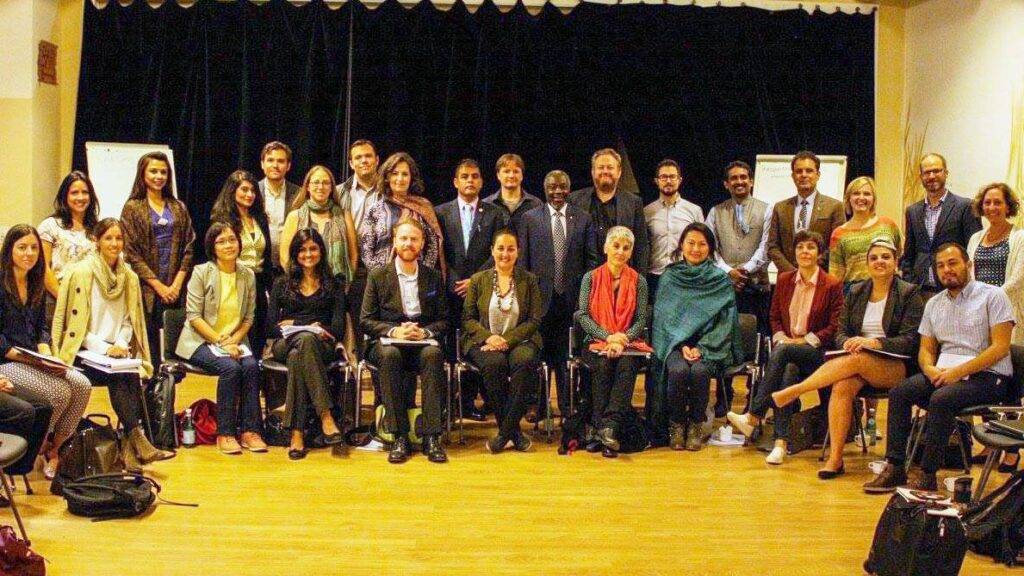
IDC members from around the world attended our 2016 Annual Member Meeting this year, held on June 14th in Geneva. The meeting was streamed live online for the first time and took place the day before the annual NGO consultations hosted by UNHCR.
In his opening address, IDC Director Grant Mitchell highlighted the pressures that NGOs are facing in response to unprecedented number of people migrating, pointing to the 250 alternatives to detention that the IDC has identified from over 50 countries, as a viable option for migration governance. Mr. Mitchell pointed out that national advocacy alone was not enough to address immigration detention, and that regional and international collaboration between agencies and governments are imperative to effect change.
During the meeting, the IDC secretariat consulted with members about developments and plans for the coming year. Trends emerging recently include identifying the need to move beyond a national security lens and use of case management to address root causes of immigration, especially in regions like the Middle East and Africa. Vanessa Martinez from the Americas region pointed out there was increased interests across the Americas to explore alternatives to detention.
Junita Calder, IDC Middle East and Africa Regional Coordinator revealed that there was continuing research into preventing child detention across Africa. Government agencies and organisations across Asia Pacific are also increasingly collaborating with each other to end child detention in the region, Evan Jones from the Asia Pacific Refugee Rights Network spokesperson said.
The IDC has a series of online trainings to increase the capacity of IDC members to advocate for changes to law, policy and practice around the use of unnecessary immigration detention. The online training will be released later this year.
If you are a member and you were not able to attend the 2016 IDC Annual Member Meeting, please contact us at [email protected] for a copy of the recording or meeting minutes.
Alternatives to Detention, Political Will & Trade Impacts: UN Expert on Migrants
The UN Special Rapporteur on the human rights of migrants, Mr. François Crépeau has highlighted the cross cutting issue of detention in several of his most recent reports. Mr. Crépeau visited Greece from 12 to 16 May to investigate the complex management of the Greek border, and its impact on the human rights of migrants. From his findings, Mr Crépeau released a mission statement warning:
“Europe’s lack of political will is creating serious suffering for thousands of migrants in Greece.”
He stressed that the Europe’s securitised immigration policies to close the borders surrounding Greece, coupled with the new EU-Turkey agreement had exponentially increased the number of refugees and migrants in the country. He criticised Europe for abandoning Greece to process these refugees and migrants alone, urging greater cooperation and shared responsibility across the EU States.
Mr Crépeau reported on the poor living conditions for refugees and migrants in Greece, and stressed that the difference between those in open camps and those held in detention centres “was striking”.
He found that an overwhelming number of children were being held in detention centres, and stressed that:
“It is unacceptable for children to be detained, and that detention can never be in the best interest of a child.”
Mr Crépeau acknowledged the positive steps taken by Greece to provide emergency services, however called upon the Governments to:
“Develop alternatives to detention in the form of open shelter for families and unaccompanied minors as a matter of urgent priority.”
Prior to his visit to Greece Mr Crépeau was in Angola for 8 days to meet with a range of Government officials responsible for migrants, as well as international and civil society organisations to discuss the country’s migration governance. He expressed his concern for the human right violations and systematic violence inflicted upon undocumented migrants, asylum seekers and refugees residing in Angola.
He was informed that vulnerable displaced persons:
“Come under continuous harassment and intimidation by the police, and are regularly arrested and arbitrarily detained in large number, including pregnant women and children”
The Special Rapporteur condemned the intimidating and abusive behaviour of law enforcement officials, stressing the need for prosecution and sanctions against these human right violations. Mr Crépeau urged the Government and the UN to quickly register all asylum seekers living in Angola, issuing identification documents to help improve their welfare and protect them against incidents of arbitrary arrest, detention, discrimination and violence. The IDC has indicated that identification can be an alternative to detention, as is an example of a practice by which persons are not detained for reasons relating to their migration status. Find out more.
Mr Crépeau’s visits to Greece and Angola also coincided with the release of his report on “bilateral and multilateral trade agreements and their impact on the human rights of migrants” , highlighting how global trade liberalization is at times undermining the human rights of migrants. The report highlighted how restricted mobility of migrants and refugees due to securitised border controls and use of detention had created precarious and informal types of work for them that existed beyond the regulatory framework:
“Where adequate provisions are not made to facilitate mobility, migrants may respond to unrecognised labour needs by seeking out irregular channels and covert intermediaries to gain employment…They become victims of deceptive recruitment practices, work in unsafe working conditions, become more vulnerable to labour exploitation at the hand of unscrupulous employers and live in constant fear of being deported and detained.”
The report identified that children were particularly at risk at being exploited for child labour and trafficked into the commercial sex industry. Women who worked in the care sector were also vulnerable to exploitation and abuse, especially if they worked in physical and social isolation.
The Special Rapporteur is scheduled to present a culmination of these findings in a report to the Human Rights Council at 10am on 14 June 2016.
Children Surviving Conflict: Focus of the Day of the African Child
June 16 is the Day of the African Child, and this year’s theme is one that is particularly relevant to the IDC mandate: that all children who have survived conflict should have the chance to live safely, freely and to make the most of their opportunities.
The IDC invites its members to share materials produced by the Global Campaign to End Child Detention, which explore the theme of children surviving conflict and calls for an end to the practice of immigration detention of children across Africa.
A round up of our members’ actions undertaken last year on the Day of the African Child can be seen here.
Children in situations of conflict are often forced to leave their homes, sometimes without a family member or guardian. While on their journeys, these children are vulnerable: they live every day at risk of being detained for not having the right papers, they are vulnerable to trafficking and exploitation.
See our child detention fact sheet to find out more about how immigration detention impacts on child health and development.
The numbers of children being forced to leave their homes is increasing - in 2015 over 10 million children had to flee their home countries in search of safety. To date, this is the highest number of children we’ve seen on the move.
The Global Campaign to End Child Detention advocates for international human rights standards to be adopted into national law, promoting the use of alternatives to immigration detention that serve the best interests of a child. Alternatives enable children to recover and reach their potential. Free in a community setting, children have access to education, support and the chance to play, learn and be safe.
Our collective voice creates a powerful force that has to be heard – join us in our support of the campaign to end child detention this coming Day of African Child.
Register now to receive the digital strategy, with videos and content to share on the day of the African Child.
Find out more about the campaign to end child detention.
Welcome to New Members of Our Advisory Committee
We are proud to welcome nine new members to the IDC's International Advisory Committee (IAC) across the Africa, the Middle East, the Asia Pacific and Europe Regions.
The IAC is comprised of 30 representatives drawn from the existing IDC membership providing guidance and counsel to the IDC Secretariat.
Many of these appointments have already worked closely with the IDC for many years, and it is a real pleasure to be able to work more closely with this esteemed group of individuals, including:
- Eunice Githinji, Refugee Consortium of Kenya (Eastern Africa)
- Thomas Touray, West Africa Institute for Legal Aid (Western Africa)
- Wayne Ncube / Prashianne Hansraj, Lawyers for Human Rights (Southern Africa)
- Jenny Collins-White, Catholic Mission (Australia, New Zealand and the Pacific)
- Julia Mayerhofer, APRRN (South Asia)
- Anderson Selvasegaram, SUKA Society (Southeast Asia)
- Katarzyna Slubik, Association for Legal Intervention (Eastern and Central Europe)
- Dr. Melissa Phillips, (North Africa)
You can access a full list of IAC Members here.
IDC Now Has Observer Status at the ACHPR
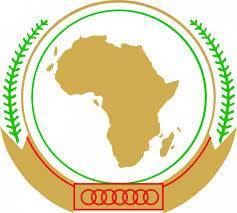 The IDC is proud to announce that we have been granted observer status with the African Commission on Human and Peoples' Rights (ACHPR), a mechanism that promotes and protects the rights guaranteed by the African Charter on Human and Peoples' Rights.
The IDC is proud to announce that we have been granted observer status with the African Commission on Human and Peoples' Rights (ACHPR), a mechanism that promotes and protects the rights guaranteed by the African Charter on Human and Peoples' Rights.
NGOs with observer status may participate in and speak at the public discussions; however, they are not permitted to vote. These NGOs must register to attend specific sessions: fill out registration forms ahead of the ordinary session, or at the opening of the session. NGOs without observer status may attend the sessions but are not allowed to speak.
See a full list of other NGOs with observer status here, including many members of the IDC.
Observer status entitles the IDC to continue to promote the rights of asylum seekers refugees and migrants in (or at risk of) immigration detention.
The IDC extends its gratitude to our many colleagues who supported this application: the Secretariat of the Africa Union, Commissioner Maya Sahli Fadel and Commissioner Med Kaggwa, and our IDC members.
Any further questions should be directed to the IDC Africa Regional Coordinator.

